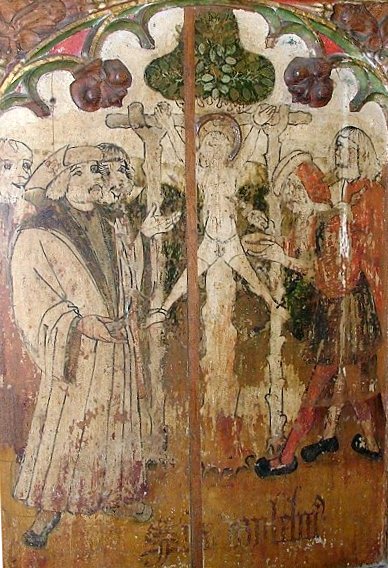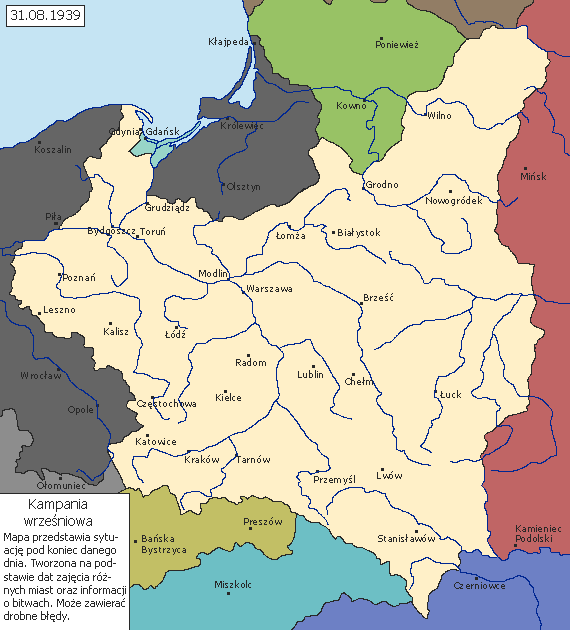|
Institute For Study Of The Jewish Question
The Institute for the Study of the Jewish Question (german: Institut zum Studium der Judenfrage) was founded in 1934 and was affiliated with the Reich Ministry of Propaganda under Joseph Goebbels. In 1939 the institution was called "Anti-Semitic Action" () and from 1942 "Anti-Jewish Action" (). The institute was founded in 1934 by Eberhard Taubert on behalf of the Reich Propaganda Ministry. Originally, the institute was to be a joint research center against Judaism, Freemasonry and liberalism, but soon the tasks were separated. From the beginning, the Propaganda Ministry tried to camouflage the institute's affiliation with the government, since negative foreign policy consequences were feared.''Die Verfolgung und Ermordung der europäischen Juden durch das nationalsozialistische Deutschland 1933–1945'' (Quellensammlung), Band 1: ''Deutsches Reich 1933–1937'' (hrsg. von Wolf Gruner) München 2008, ISBN 978-3-486-58480-6, S. 624, Nr. 259. See also * Institute for the Stud ... [...More Info...] [...Related Items...] OR: [Wikipedia] [Google] [Baidu] |
Reich Ministry Of Propaganda
The Reich Ministry for Public Enlightenment and Propaganda (; RMVP), also known simply as the Ministry of Propaganda (), controlled the content of the press, literature, visual arts, film, theater, music and radio in Nazi Germany. The ministry was created as the central institution of Nazi propaganda shortly after the party's national seizure of power in January 1933. In the Hitler cabinet, it was headed by Propaganda Minister Joseph Goebbels, who exercised control over all German mass media and creative artists through his ministry and the Reich Chamber of Culture (), which was established in the fall of 1933. Establishment and functions Shortly after the March 1933 Reichstag elections, Adolf Hitler presented his cabinet with a draft resolution to establish the ministry. Despite the skepticism of some non-National Socialist ministers, Hitler pushed the resolution through. On 13 March 1933, Reich President Paul von Hindenburg issued a decree ordering the establishment of ... [...More Info...] [...Related Items...] OR: [Wikipedia] [Google] [Baidu] |
Wolff Heinrichsdorff
Wolff is a variant of the Wolf surname which is derived from the baptismal names Wolfgang or Wolfram. List of people surnamed Wolff A * Albert Wolff (other), several people * Alex Wolff, American actor * Alexander Wolff, American writer * Alexander Wolff (soldier), (1788–1863), British officer who served under the Duke of Wellington B * Betje Wolff (1738–1804), Dutch writer * Bernard Wolff (1811–1879), German media mogul * Beverly Wolff (1928–2005), American mezzo-soprano * Bobby Wolff (born 1932), American bribe player C * Carl Gustaf Wolff, a prominent Finnish shipowner and businessman * Caspar Friedrich Wolff (1734–1794), founder of embryology * Christian Wolff (other), several people * Christoph Wolff (born 1940), German-born musicologist E * Ed Wolff (actor) (1907–1966), American actor * Edward Wolff (born 1946), American economist *Elsie and Mathilde Wolff Van Sandau (''alive in'' 1914), British suffragette sisters * Enrique Wolff (born 1 ... [...More Info...] [...Related Items...] OR: [Wikipedia] [Google] [Baidu] |
Organizations Established In 1934
An organization or organisation (Commonwealth English; see spelling differences), is an entity—such as a company, an institution, or an association—comprising one or more people and having a particular purpose. The word is derived from the Greek word ''organon'', which means tool or instrument, musical instrument, and organ. Types There are a variety of legal types of organizations, including corporations, governments, non-governmental organizations, political organizations, international organizations, armed forces, charities, not-for-profit corporations, partnerships, cooperatives, and educational institutions, etc. A hybrid organization is a body that operates in both the public sector and the private sector simultaneously, fulfilling public duties and developing commercial market activities. A voluntary association is an organization consisting of volunteers. Such organizations may be able to operate without legal formalities, depending on jurisdiction, incl ... [...More Info...] [...Related Items...] OR: [Wikipedia] [Google] [Baidu] |
Nazi Propaganda
The propaganda used by the German Nazi Party in the years leading up to and during Adolf Hitler's dictatorship of Germany from 1933 to 1945 was a crucial instrument for acquiring and maintaining power, and for the implementation of Nazi policies. Themes Nazi propaganda promoted Nazi ideology by demonizing the enemies of the Nazi Party, notably Jews and communists, but also capitalists and intellectuals. It promoted the values asserted by the Nazis, including heroic death, '' Führerprinzip'' (leader principle), '' Volksgemeinschaft'' (people's community), '' Blut und Boden'' (blood and soil) and pride in the Germanic ''Herrenvolk'' (master race). Propaganda was also used to maintain the cult of personality around Nazi leader Adolf Hitler, and to promote campaigns for eugenics and the annexation of German-speaking areas. After the outbreak of World War II, Nazi propaganda vilified Germany's enemies, notably the United Kingdom, the Soviet Union and the United States, and in ... [...More Info...] [...Related Items...] OR: [Wikipedia] [Google] [Baidu] |
Nazi Party Organizations
Nazism ( ; german: Nazismus), the common name in English for National Socialism (german: Nationalsozialismus, ), is the far-right totalitarian political ideology and practices associated with Adolf Hitler and the Nazi Party (NSDAP) in Nazi Germany. During Hitler's rise to power in 1930s Europe, it was frequently referred to as Hitlerism (german: Hitlerfaschismus). The later related term "neo-Nazism" is applied to other far-right groups with similar ideas which formed after the Second World War. Nazism is a form of fascism, with disdain for liberal democracy and the parliamentary system. It incorporates a dictatorship, fervent antisemitism, anti-communism, scientific racism, and the use of eugenics into its creed. Its extreme nationalism originated in pan-Germanism and the ethno-nationalist '' Völkisch'' movement which had been a prominent aspect of German nationalism since the late 19th century, and it was strongly influenced by the paramilitary groups that emerged afte ... [...More Info...] [...Related Items...] OR: [Wikipedia] [Google] [Baidu] |
Jewish Nazi German History
Jews ( he, יְהוּדִים, , ) or Jewish people are an ethnoreligious group and nation originating from the Israelites Israelite origins and kingdom: "The first act in the long drama of Jewish history is the age of the Israelites""The people of the Kingdom of Israel and the ethnic and religious group known as the Jewish people that descended from them have been subjected to a number of forced migrations in their history" and Hebrews of historical Israel and Judah. Jewish ethnicity, nationhood, and religion are strongly interrelated, "Historically, the religious and ethnic dimensions of Jewish identity have been closely interwoven. In fact, so closely bound are they, that the traditional Jewish lexicon hardly distinguishes between the two concepts. Jewish religious practice, by definition, was observed exclusively by the Jewish people, and notions of Jewish peoplehood, nation, and community were suffused with faith in the Jewish God, the practice of Jewish (religious) l ... [...More Info...] [...Related Items...] OR: [Wikipedia] [Google] [Baidu] |
Former Research Institutes
A former is an object, such as a template, gauge or cutting die, which is used to form something such as a boat's hull. Typically, a former gives shape to a structure that may have complex curvature. A former may become an integral part of the finished structure, as in an aircraft fuselage, or it may be removable, being using in the construction process and then discarded or re-used. Aircraft formers Formers are used in the construction of aircraft fuselage, of which a typical fuselage has a series from the nose to the empennage, typically perpendicular to the longitudinal axis of the aircraft. The primary purpose of formers is to establish the shape of the fuselage and reduce the column length of stringers to prevent instability. Formers are typically attached to longerons, which support the skin of the aircraft. The "former-and-longeron" technique (also called stations and stringers) was adopted from boat construction, and was typical of light aircraft built until the adv ... [...More Info...] [...Related Items...] OR: [Wikipedia] [Google] [Baidu] |
Antisemitism In Germany
Antisemitism (also spelled anti-Semitism)—prejudice, hatred of, or discrimination against Jews— has experienced a long history of expression since the days of ancient civilizations, with most of it having originated in the Christianity, Christian and pre-Christian civilizations of Europe. While it has been cited as having been expressed in the intellectual and political centers of ancient Greece and the Roman Empire, the phenomenon received greater institutionalization within European Christianity following the dissolution of the ancient center of Jewish culture, Jerusalem, resulting in the Jewish ghettos in Europe, forced segregation of Jewish populations and restrictions on their participation in the public life of European society at times. In the 20th century, antisemitism , particularly during the reign of Nazi Germany, resulted in the Holocaust, a program of systematic murder and dislocation of the majority of Europe's Jewish population. Roman Empire Middle Ages A ... [...More Info...] [...Related Items...] OR: [Wikipedia] [Google] [Baidu] |
1930s In Politics
File:1930s decade montage.png, From left, clockwise: Dorothea Lange's photo of the homeless Florence Thompson shows the effects of the Great Depression; due to extreme drought conditions, farms across the south-central United States become dry and the Dust Bowl spreads; The Empire of Japan invades China, which eventually leads to the Second Sino-Japanese War. In 1937, Japanese soldiers massacre civilians in Nanking; aviator Amelia Earhart becomes an American flight icon; German dictator Adolf Hitler and the Nazi Party attempt to establish a New Order of German hegemony in Europe, which culminates in 1939 when Germany invades Poland, leading to the outbreak of World War II. The Nazis also persecute Jews in Germany, specifically with Kristallnacht in 1938; the '' Hindenburg'' explodes over a small New Jersey airfield, causing 36 deaths and effectively ending commercial airship travel; Mohandas Gandhi walks to the Arabian Sea in the Salt March of 1930., 410px, thumb rect 1 1 174 ... [...More Info...] [...Related Items...] OR: [Wikipedia] [Google] [Baidu] |
Ludwig Franz Gengler
Ludwig may refer to: People and fictional characters * Ludwig (given name), including a list of people and fictional characters * Ludwig (surname), including a list of people * Ludwig Ahgren, or simply Ludwig, American YouTube live streamer and content creator Arts and entertainment * ''Ludwig'' (cartoon), a 1977 animated children's series * ''Ludwig'' (film), a 1973 film by Luchino Visconti about Ludwig II of Bavaria * '' Ludwig: Requiem for a Virgin King'', a 1972 film by Hans-Jürgen Syberberg about Ludwig II of Bavaria * "Ludwig", a 1967 song by Al Hirt Other uses * Ludwig (crater), a small lunar impact crater just beyond the eastern limb of the Moon * Ludwig, Missouri, an unincorporated community in the United States * Ludwig Canal, an abandoned canal in southern Germany * Ludwig Drums, an American manufacturer of musical instruments * ''Ludwig'' (ship), a steamer that sank in 1861 after a collision with the '' Stadt Zürich'' See also * Ludewig * Ludvig * Ludwik ... [...More Info...] [...Related Items...] OR: [Wikipedia] [Google] [Baidu] |
Wilhelm Ziegler , the Dutch national anthem
{{Disambiguation ...
Wilhelm may refer to: People and fictional characters * William Charles John Pitcher, costume designer known professionally as "Wilhelm" * Wilhelm (name), a list of people and fictional characters with the given name or surname Other uses * Mount Wilhelm, the highest mountain in Papua New Guinea * Wilhelm Archipelago, Antarctica * Wilhelm (crater), a lunar crater See also * Wilhelm scream, a stock sound effect * SS ''Kaiser Wilhelm II'', or USS ''Agamemnon'', a German steam ship * Wilhelmus "Wilhelmus van Nassouwe", usually known just as "Wilhelmus" ( nl, Het Wilhelmus, italic=no; ; English translation: "The William"), is the national anthem of both the Netherlands and the Kingdom of the Netherlands. It dates back to at least 1572 ... [...More Info...] [...Related Items...] OR: [Wikipedia] [Google] [Baidu] |




